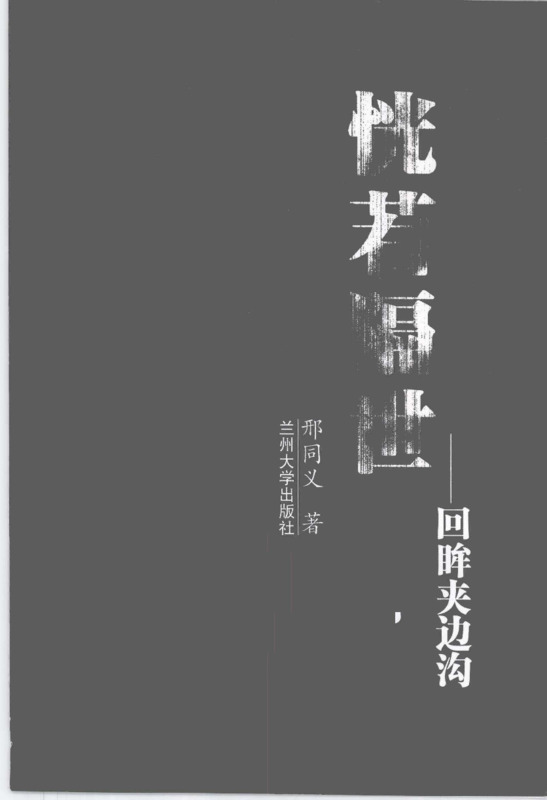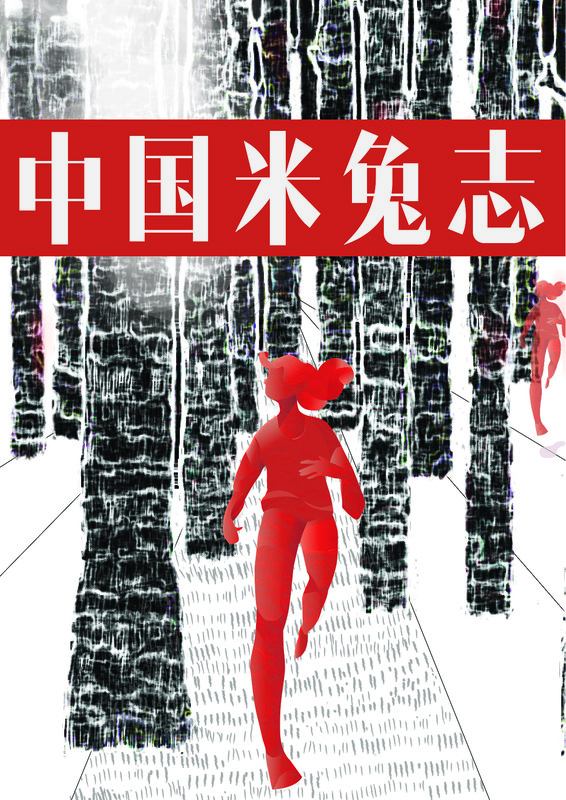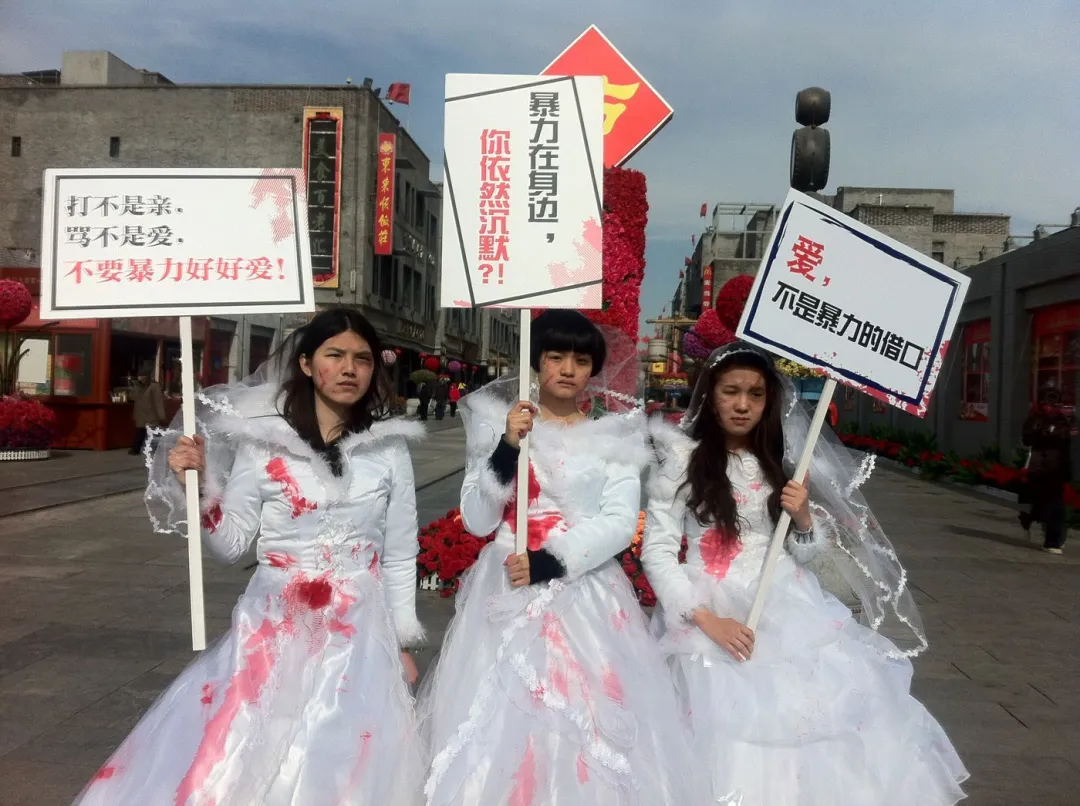Explore the collection
Showing 67 items in the collection
67 items
Film and Video
Why Are Flowers So Red
This film follows the stories of environmental activist Tan Zuoren and artist Ai Weiwei. In July 2009, Tan Zuoren was charged with the crime of “Inciting subversion of state power,” and his trial was held in Chengdu, Sichuan Province. Ai Weiwei was invited by Tan’s lawyer to testify in court, but the night before the trial, he was assaulted by the police and detained in a hotel. To everyone’s surprise, Ai turned on the tape recorder before the police entered his residence and managed to record the incident. Later, Ai and his colleagues released a documentary about this incident, titled “Disturbing the Peace” (or “Laoma Tihua”).
This film interviews the people behind the scenes of “Disturbing the Peace,” including the director, photographers, editors, and audiences of the film, who discuss the relationship between citizens and government authority.
This series of films are in Chinese with Chinese subtitles.
Book
Worlds Away: A Look Back at Jiabiangou
This book was published by Lanzhou University Press in 2004. The author, Xing Tongyi, once served as deputy director of Gansu People's Broadcasting Station and director of the Standing Committee of the Jiuquan Municipal People's Congress.
Jiabiangou Farm is a farm located on the edge of the Badain Jaran Desert in Jiuquan, Gansu Province, about 30 kilometers northeast of Jiuquan City. It became a labor camp in 1957. Before it was banned in October 1961, more than 3,000 intellectuals who were labeled as rightists were detained here. During the Great Famine, most of the intellectuals in farm labor camps died due to starvation and excessive workload. This is known as the Jiabiangou Incident. Jiabiangou has also become a symbol of the concentration camps where persecuted intellectuals were imprisoned.
Xing Tongyi was born in Tianshui, Gansu. He said that when he was young, he witnessed a neighbor named Guo being beaten as a rightist and sent to Jiabiangou Labor Camp. In 1961, he learned that this neighbor had starved to death in Jiabiangou. When he was in school at No. 1 Middle School in Tianshui City, his math teacher was Li Jinghang, a Christian who survived Jiabiangou. Xing Tongyi later served as a reporter and deputy director of Gansu Radio Station for a long time, and went to work in Jiuquan in 1996. After that, he took advantage of various opportunities to go deep into Jiabiangou and some surrounding labor reform farms. By consulting a large number of historical materials, he interviewed dozens of rightists who had undergone labor reform in Jiabiangou, or the children of these rightists. It took eight years to complete this book.
Unlike Yang Xianhui's novelistic description of Jiabiangou, Xing Tongyi's narrative is composed of interviews with the people involved and quotations from first-hand historical materials. According to Xing Tongyi, the historical materials he referred to include the Jiabiangou Farm's "Plan and Mission Statement" and the anti-rightist report of "Gansu Daily" in 1957. In addition to interviewing Jiabiangou survivors or their children, he also found information on more than 40 of the more than 2,000 rightists who were in labor camps at the time and were prosecuted by the Jiuquan County Procuratorate for resisting labor camps. After the book was published, people continued to provide him with historical materials, such as death notices and diaries of the victims.
How many labor camp inmates were there in Jiabiangou at that time? In order to clarify this issue, Xing Tongyi interviewed dozens of people, reviewed information, and also found Luo Zengfu, the production section chief of Jiabiangou Labor Camp, the only farm management cadre alive at the time. Based on the information provided by Luo Zengfu, Xing Tongyi's research concluded that there were a total of about 2,800 inmates in Jiabiangou Farm at that time, including about 2,500 rightists. This number is considered to be relatively accurate.
Book
Yangmou - The Beginning and End of the Anti-Rightist Movement
The revised edition of this book was published by *Open Magazine* in Hong Kong in 2007. The first edition was published in 1991 and was revised and reprinted twice, in 1993 and 1995. The book collects a large amount of information about the anti-rightist movement, including survey interviews with victims of the anti-rightist movement and their relatives and friends. It is a complete record of the anti-rightist movement, which comprehensively analyzes and discusses the whole process of the anti-rightist movement, as well as its ins and outs, causes and consequences. Regarding the number of "rightists," the statistics of the CCP authorities had been limited to 550,000 people. According to Ding Lyric's analysis, there were about 1.2 million people who were labeled as "rightists" in the Anti-Rightist Movement.
图书
#MeToo in China Archives 2018.1-2019.7
On New Year's Day 2018, Beihang University graduate Luo Xixi took the lead in breaking China's silence on the issue of sexual harassment when she publicly reported on social media that Beihang professor Chen Xiaowu had sexually harassed her. This was the first major event in China’s #Metoo movement, which has since spread from colleges and universities to other fields. #Metoo provoked an unprecedented discussion in China, and the issues of feminism and sexual harassment attracted a rare and widespread attention, with a variety of complaints, comments, studies, and advocacy articles springing up all over the internet.
<i>#MeToo in China Archives 2018.1-2019.7</i> is a compilation of sexual harassment-related articles written between January 2018 and July 2019. This archive is massive, totaling more than 2,500 pages, and is divided into three main volumes: “#Metoo in Higher Education”, “#Metoo in other fields”, and “#Metoo discussions’. Volume I and Volume II consist of individual #Metoo cases, arranged in chronological order. Articles in volume 3 can be broadly categorized into general reviews, investigative reports, personal stories, advocacy and activism, tools and resources,etc. During the #Metoo movement, many liberal public intellectuals questioned the movement, likening it to big-character posters during the Hundred Flowers campaign, and arguing that it might lead to the proliferation of wrongful convictions. It triggered heated debates, and this archive also contains a number of related articles.
The process of compiling this archive itself became an act of resistance, given the severe repression on freedom of expression and social movements. The editorial team faced tremendous challenges in collecting articles that had been deleted or published as images to bypass online censorship. It spent a great deal of time and personnel piecing together scraps of information and transcribing words in images. Reading traumatic personal stories - including those about the hardships in seeking remedies - caused psychological trauma for the editors themselves.
Nevertheless, #Metoo has also a process of collective healing, in which women with shared experiences saw each other, realized the structural problems behind sexual violence, and gained the strength to move on and push for change. Finally, during the compilation process, the editorial team also benefited from archiving efforts made by other websites and individuals, demonstrating that the rescue and preservation of people’s history is a collective and collaborative task.
This archive is published on https://chinesefeminism.org/.
Article
A Brief History of Young Feminists Activism in China
Since 2012, a group known as the “Young Feminist Activists”, has emerged in China. They often use performance art in public to promote gender equality issues; they question injustice, and engage in policy advocacy to advance women’s rights. They make use of social media and the internet to provoke public debate, build public support, and mount pressure for social and self-transformation in China. Their direct actions created new space for activism in China's tightening political environment.
This article provides a detailed overview of the actions initiated by the young feminist activists between 2012 and 2019. These actions cover a wide range of gender issues, including but not limited to sexual assault/harassment, gender-based violence, gender equality in employment and schooling, gender stigma and stereotyping, marriage autonomy, and lesbian rights and interests. These actions have not only raised the public's awareness of gender equality, but also promoted the introduction of gender equality legislation and policies.
A turning point came In 2015 when five young feminist activists were arrested and detained for 37 days for planning to hold an anti-sexual harassment campaign on March 8, Interantional Women's Day. Since then, young feminist activists have almost completely lost their space on the streets. However, as can be seen from this article, feminist activism did not disappear, but sustained and continued in a variety of ways, including the creative use of social media and leveraging transnational solidarity and action.
In the article, the author says, “Young feminist activists should not be forgotten by the public, especially in an environment where censorship has intensified in the past years, civil society has nearly collapsed, and it is extremely difficult for people to speak out. While there is a seeming increase in discussion of feminism in domestic social media, it has been severely depoliticized, feminist activists are marginalized and stigmatized, and their voices silenced. Therefore, it is particularly important to tell the stories of young feminist activists and popularize knowledge about the domestic feminist movement. It is important to let more people see the spirit and achievements of the new generation of Chinese feminists, and understand the important gender issues they have promoted.”
The article is accompanied by numerous images, videos and links to other resources for further reading.
Film and Video
Beijing's Petition Village
In China, individuals can complain to higher authorities about corrupt government processes or officials through the petition system. The form of extrajudicial action, also known as "Letters and Visits" (from the Chinese xinfang and shangfang), dates back to the imperial era. If people believe that a judicial case was concluded not in accordance with law or that local government officials illegally violated his rights, they can bring it to authorities in a more elevated level of government for hearing, re-decide it and punish the lower level authorities. Every level and office in the Chinese government has a bureau of “Letters and Visits.” What sets China’s petitioning system apart is that it is a formal procedure—and as Zhao Liang's documentary shows, the system is largely a failure.
A residential area near Beijing South Railway Station was once home to tens of thousands of residents from all over the country. Known as “Petition Village,” its bungalows and shacks were demolished by authorities several times, but many petitioners still clung to the land in search of a clear future. _Beijing Petition Village_ portrays the village in the midst of this upheaval, focusing on the thousands of civilians who travel from the provinces to lodge their complaints in person with the highest petitioning body, the State Bureau of Letters and Visits Calls in the province, only to repeatedly get the brush-off by state officials. Ultimately, in 2007, Petition Village was demolished for good.
The film went on to win the Halekulani Golden Orchid Award for Best Documentary Film at the 29th Hawaii International Film Festival, and a Humanitarian Award for Documentaries at the 34th Hong Kong Film Awards.






